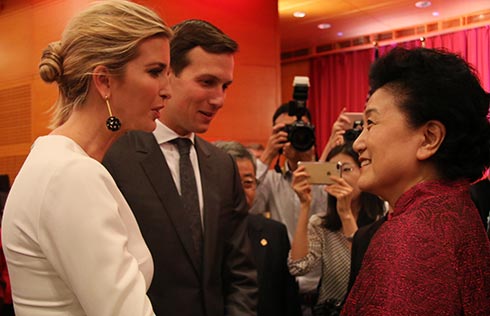UK wage growth edges above forecasts, likely to cement BoE rate hike bets
 |
|
Workers cross London Bridge during the morning rush hour in London, Britain, August 16, 2017. [Photo/Agencies] |
LONDON - British pay growth has lagged behind inflation again, official data showed, but the figures are likely to cement expectations among investors that the Bank of England will soon raise interest rates for the first time in a decade.
The data also showed the unemployment rate between June and August held at its 42-year low of 4.3 percent, one of the reasons why the BoE thinks pay is likely to pick up soon.
Despite a slowdown in Britain's economy this year, the central bank is widely expected to increase its Bank Rate to 0.50 percent from an all-time low of 0.25 percent on Nov 2, at the end of its next meeting.
The BoE has said it expects pay growth to pick up speed soon because the unemployment rate is below the 4.5 percent level that it considers to be a trigger for inflation pressure in the economy. It also thinks Brexit will increase price growth in Britain.
The Office for National Statistics said on Wednesday that workers' total earnings, including bonuses, rose by an annual 2.2 percent in the three months to August and it slightly revised up growth in the three months to July to 2.2 percent as well.
Economists taking part in a Reuters poll had expected wage growth of 2.1 percent.
Excluding bonuses, earnings rose by 2.1 percent, a touch stronger than the Reuters poll forecast of 2.0 percent.
Wages have steadily fallen behind inflation which hit 3 percent in September, its highest level in more than five years.
In August alone, total wages picked up speed to grow by 2.2 percent after a slowdown in July to 1.7 percent.
The steady loss of spending power for households is not just a headache for the BoE. Prime Minister Theresa May has promised help for households and has proposed a cap on power tariffs to ease the squeeze on their budgets.
Finance minister Philip Hammond is under pressure to come up with further measures when he announces his budget plan in November. But he has little margin for error given the still weak state of Britain’s public finances.
The number of people in work rose by 94,000 people in the three months to August, about half the increase in the three months to July but still a relatively strong rate of growth.
The employment rate stood at 75.1 percent, falling slightly from the previous reading but still higher than in most other rich economies the ONS said.





















